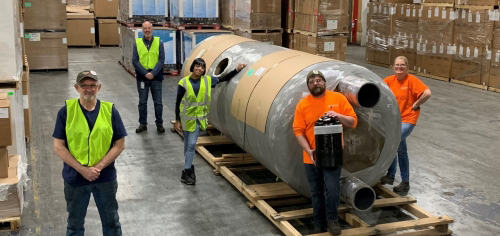Episode 11: Better Prospecting – A Case Study in Sales Micro-Training
Sales training is a perennial struggle for any organization. For companies that build a defined process around improving sales effectiveness, the results are often dramatic. I’m really excited about the interview in our latest podcast I had with Matt McCorkle, manager of U.S. Branch Operations, Kaeser Compressors, where he discusses how he used a combination of conventional and micro-sales training methods to build a culture of prospecting and growing new accounts for Kaeser’s 100-person distribution sales force in the U.S. We also hear from Steve Meyer, president and CEO of Rapid Learning Institute, a provider of sales and leadership micro-training, on how micro-training is different.
The podcast maps out the specific challenges McCorkle faced in getting conventional sales training methods to stick, and how he then used a combination of tools to achieve the clear objectives the organization set. Even if you don’t expect to jump into the sales-training deep end of the pool any time soon, there is some strong case-study insight that McCorkle generously shares here.
As he notes, it’s infrequent to have a dedicated sales manager, with branch managers taking on dual roles. And with 16 factory stores across the country, there were several challenges: getting consistent execution of sales strategy at every branch, getting consistent growth and performance out of every branch, and transferring knowledge from successful players to new people. With the pace of change taking place in sales today, the company wanted to find a way to enable these managers to effectively lead and guide the sales force.
Micro-training
Four years ago, the company started running conventional instructor- or consultant-led training programs, but found that retention of the information and tactics dropped off quickly for many participants. The management team decided to focus on the one thing they wanted the sales team to get better at over the following 12 months. The answer was prospecting. They kicked the tires on micro-training and liked what they saw.
Micro-training is just what it sounds like — small bites of information. For McCorkle, small modules with current sales tactics made a difference in combination with the traditional training to create measurable results in sales performance. Retention increased, and accountability was built in since the micro-training is a web-based platform that can be managed for assessing participation and retention.
As McCorkle noted, “everybody learns a little bit differently, so I think a combination of training methods works really well. I told my team, ‘Let’s not jump on people if they don’t learn something the first time. Let’s teach something to the team seven times, because that’s what it takes for all of us to learn something.”
Now that there’s a strong sales training program in place, the focus of the organization is shifting to coaching to expand the results. In our annual Sales GPS conferences and the pages of MDM, we look at a lot of the ways that distributors are tackling the challenge of increasing the effectiveness of their sales force. I hope you’ll get something out of how this distribution operation achieved some significant performance lift by putting the effort into their sales effectiveness training strategies and programs.
We want to hear from you! Please comment below or send to info@mdm.com.
Related Posts
-
In this second of our three-part conversation on innovation in distribution, J Schneider of strategy…
-
Modern Distribution Management launches a new, user-friendly and streamlined look to our website, mdm.com.
-
Industrial & Flow Technologies sales were down 3% compared to sales for the same period…





